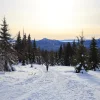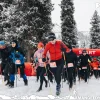Luke Grenfell-Shaw on becoming a world-class trailrunner after being diagnosed with cancer
Luke Grenfell-Shaw is a professional trailrunner, a winner of some incredible ultra races, and just a wonderful human being with a very positive outlook on life. But six years ago, his life was turned upside down with a diagnosis that sounded like a death sentence: he was told that he has a very rare and aggressive stage four cancer. In our conversation, Luke shares what helped him get through treatment, discloses his teenage dream and talks about his current life and the challenges he faces.
It's impossible to remain untouched after hearing Luke's story and to not reconsider your own outlook on life. Such inspirational and life-celebrating stories are worth sharing and I believe that by reading them we become more compassionate and conscious of the way we live our lives and that will help to make a world a better place.
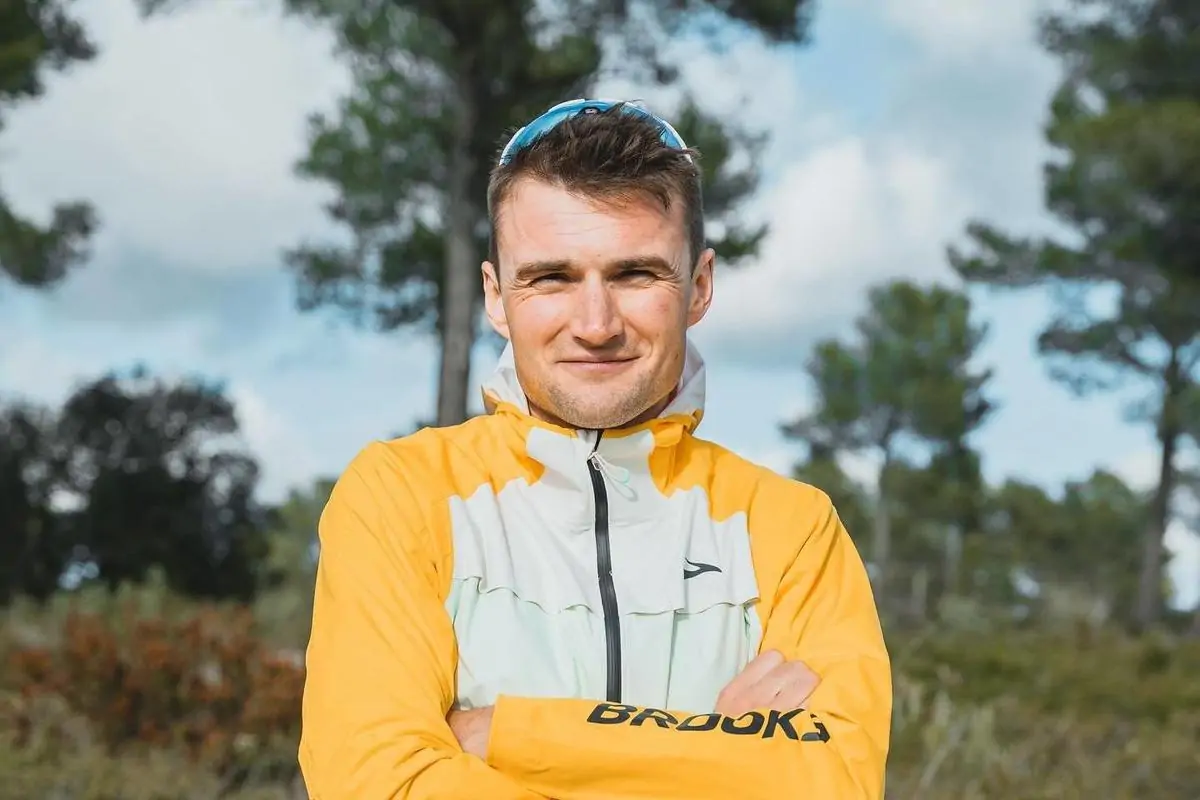
«It shouldn’t take a cancer diagnosis to make you do something that you really believe in.»
Hey Luke! Thanks for finding time to have an interview with us. We are now sitting in a cafe in Almaty and that's why I have a very important question — why are you here in Almaty?
— For me Almaty gives this really nice mix of beautiful mountains with a really good running in them whilst at the same time you can live in a city with everything that happens there like cafes, bars, theatres. And I guess for me the balance with running is one of the most important things, I am trying to find a happy medium.
It’s interesting to know. As far as I know you can speak Russian and we probably could have done the whole interview in Russian. How come that you happened to learn Russian?
— I was fortunate enough to have an opportunity to study Russian at school, which I thought was much more interesting than French or Spanish. I first visited Saint-Petersburg back in 2009 and found Russia to be a country that was very different from the UK. And it became sort of mini life goal of mine to speak really good Russian. So I went back out to Tyumen in Siberia in 2018 to teach English and study Russian and then I also worked at a university in Kyrgyzstan. I first travelled in Kazakhstan in 2021 and have since found myself coming back several times.
Okay, so you’ve spent some time in Russia and what was your plan for life initially at that point?
— I think my plan for life at that point was probably to go down one of two paths, one of more a traditional route of becoming a consultant and having a pretty good well-paid job and salary back in the UK. The other thing I was looking out for was becoming a plant scientist and doing a phD in plant science in how to make drought resistant crops and then going into international development. But life had other plans.
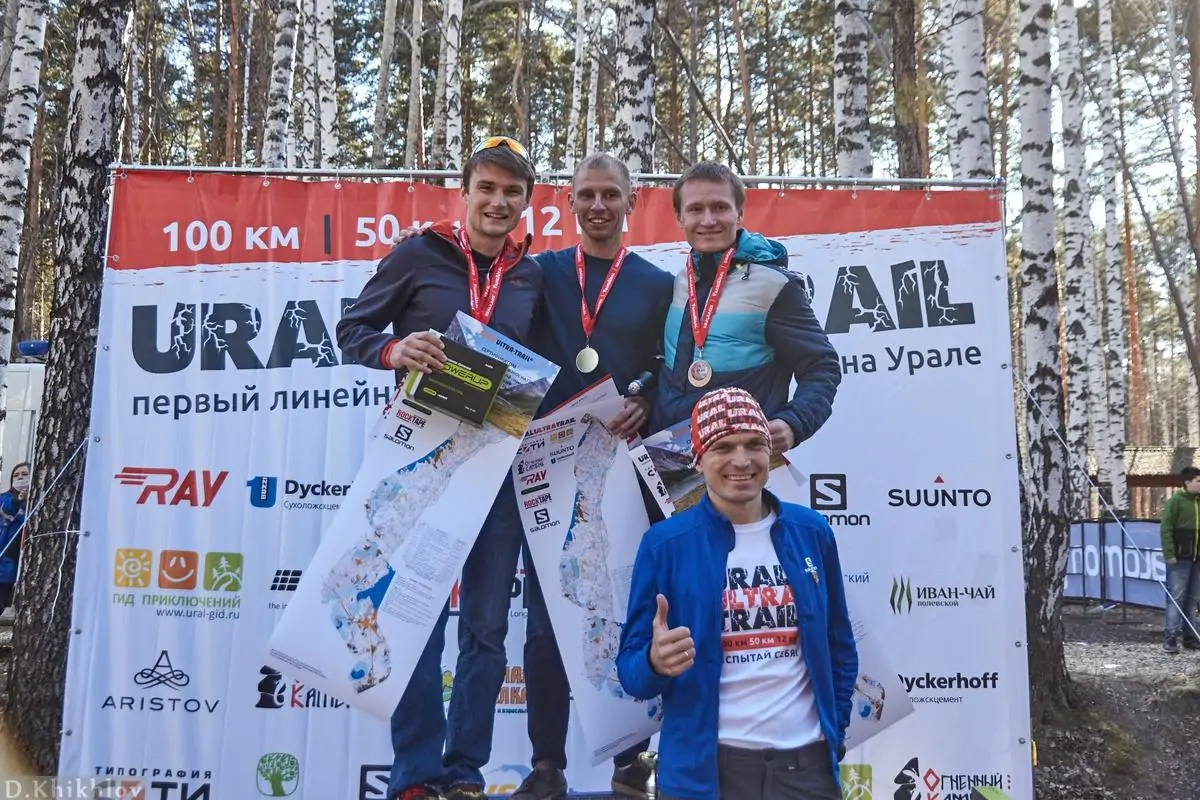
There was a life changing event in your life six years ago. Could you tell us a bit more about that difficult period of time?
— Back in 2018 when I was in Tyumen I was 24 years old and I was in a really, really good physical shape. I completed my first ultra marathon which was the Ural Ultra trail 50 K. And to my surprise I came second behind Evgeniy who had run a 1.03 half marathon and had represented Russia. I was very surprised when I found that out because I didn’t think I’d be running with such good runners. Running in the forests and hills was so much fun and such an eye-opener to the world of trails.
But at the same time I had this ache in my left shoulder for several months. Eventually I went to the school nurse to get it checked out and her reaction when she saw it was like “Боже мой” (oh my God). Then I realised something was pretty wrong with my shoulder: it had really swollen up, it was like someone had blown up a balloon beneath the skin or something. Long story short, it was cancer. It was a very rare and aggressive cancer, that primary tumour was about the size of a pineapple. It had spread to my lungs and I had 13 lung nodules. And the doctors said I was basically gonna die and the most I could hope for that chemotherapy would buy me a bit of time. So that obviously changed everything.
You then underwent chemotherapy treatment and I guess it went better than everyone expected?
—Yeah, well, certainly the response to chemotherapy was better than expected but still the general assumption was that my cancer was gonna come back very soon. I was having scans once every 3 months and the expectation was with every scan that my cancer would come back.
You’ve just had a taste of almost winning a trail running race and then you got diagnosed. Did you continue doing sport of some kind during your treatment as it was a huge part of your life before that?
— Yes, exercise has always been a huge part of my life. I had come from a background of doing orienteering, cross-country running as a kid, then doing triathlon as a teenager and through university. I was already pretty fit, and I think that gave me a huge advantage going into treatment ‘cause I was not trying to do something new, I was just trying to sustain the fitness I had already. During my time in hospital I would go for a walk every day for an hour, I would have my bike on a turbo trainer in my hospital room. And then in times between my chemotherapy sessions I would run and cycle and that kept me in unusually good physical condition.
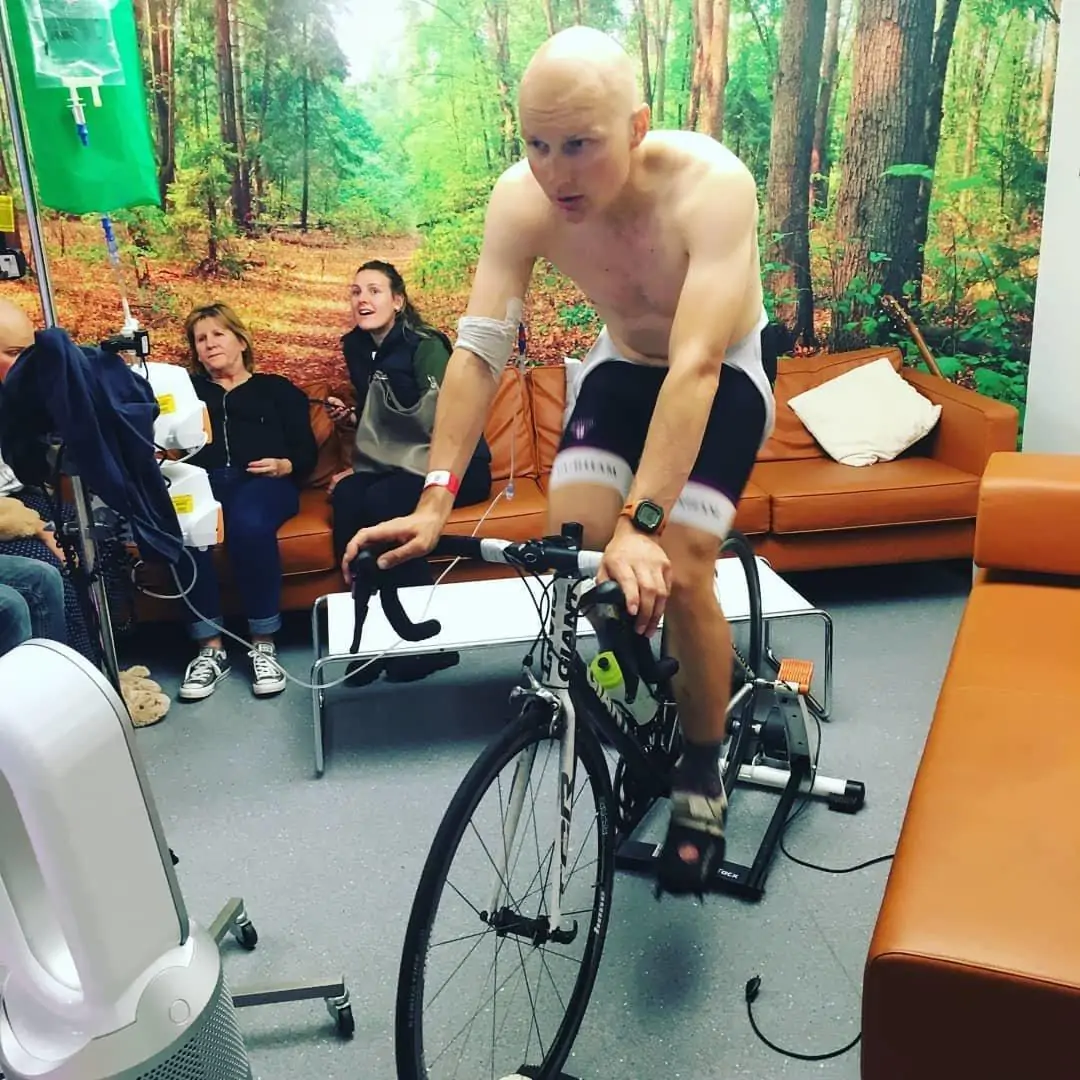
«It’s very empowering to exercise through your treatment because you’re showing to yourself and, I guess, doctors and people around you that you’re not just an impassive patient, powerless patient.»
Do you think exercise makes a contribution not only to your physical health but is also vital for mental well-being?
—Yeah, I think exercise are awesome and hugely beneficial for your mental well-being and your ability to think and act positively in a situation when it feels like there is no hope. And I think it’s very empowering to exercise through your treatment because you’re showing to yourself and, I guess, doctors and people around you that you’re not just an impassive patient, powerless patient. And I think it means that you don’t need to be defined by your cancer, you can move beyond that.
It sounds like it could be universal advice not only for people who are suffering from cancer or other disease but for everyone with other difficulties in life.
— Yeah, anyone who’s facing a stressful life :) I think we're humans, we’re meant to be active, we’re meant to move and when we don’t have that opportunity, we tend to get stressed about other stuff and so it is a very good way to give us mental release, remove the stress, boost your mood.
This whole extremely tough experience has made you think a lot about your life and what you really want to do with it after the treatment is finished. Do you think it is probably something that every person should do more often — think about their life decisions and what their real desires are?
— Yeah, I think so, because the reality is that none of us know how long that we have and you just don’t know what is going to happen. And so — why would you want to live your dreams later? But I think more generally — why wouldn’t you do something that you feel passionate about? It shouldn’t take a cancer diagnosis to make you do something that you really believe in. But it is obviously a huge shock and oftentimes you need some sort of catalyst to force you to take that first step. And that was definitely what happened in my case. It forces you to think beyond what’s usually considered possible or what you’d consider yourself to be possible or like a good idea or realistic idea.
What was your dream that you decided to fulfil after your treatment?
— I decided to go for my dream which I had since I was a teenager of cycling around the world. So I decided to cycle from Bristol to Beijing on a tandem bike.
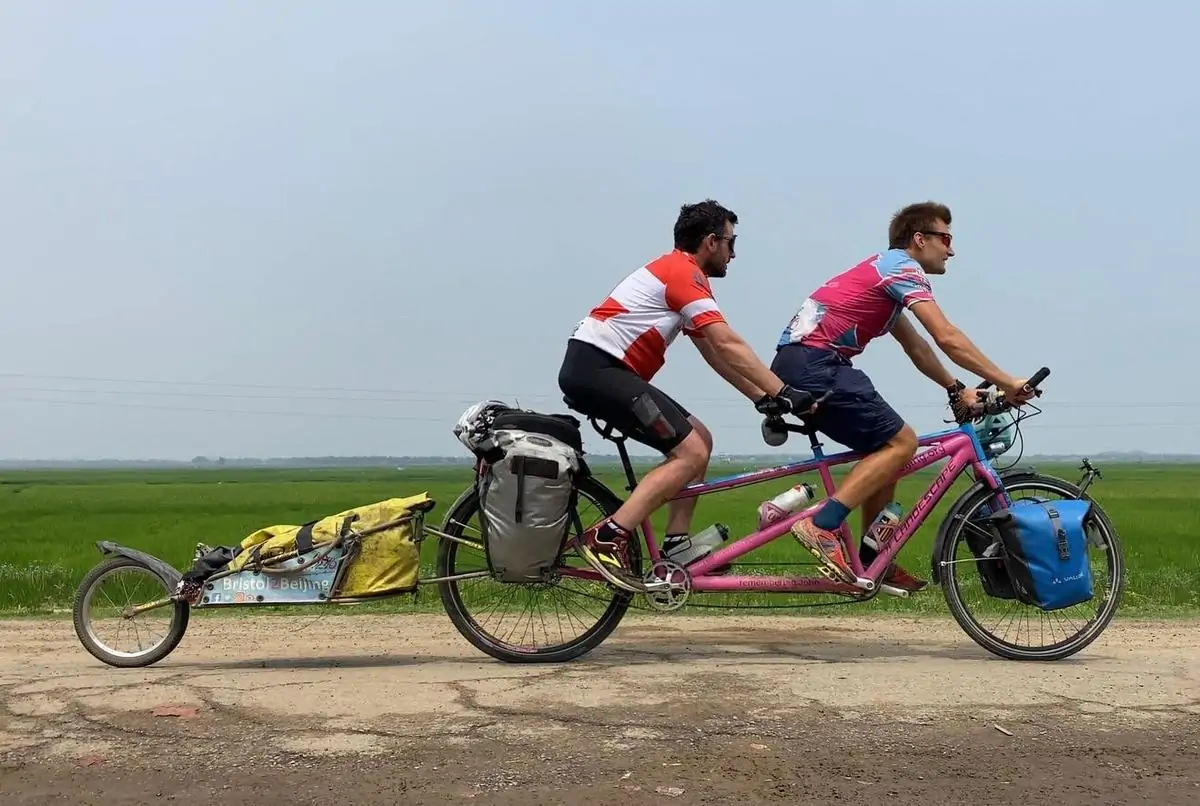
«I wanted to spread a message and show what is possible with a cancer diagnosis and it can sometimes be a lot more than you’d expect.»
Was it just the fulfilment of your teenage dream? Did you just jump on your bike and start that epic journey or was there any bigger idea behind that?
— It started off as an idea to fulfil my dream of cycling around the world but quite quickly it developed into becoming something more. I realised I wanted to share a journey with other people, that’s why I chose to do it on a tandem. And more than that I realised that I wanted to spread a message and show what is possible with a cancer diagnosis and it can sometimes be a lot more than you’d expect. Because when I was diagnosed I wanted to see some point of hope and I couldn’t find anyone who had had a similar cancer and gone on to live. I also wanted to show that you can live with cancer and be active and have adventures and my hope is that some people might take some inspiration from that. But to make my message more powerful and more credible I decided I would do it with other people who’d also been diagnosed with cancer. And together we would show that you could be active and have these adventures and having cancer isn’t a barrier.
Did you have a chance to actually cycle the whole route?
— It was during Covid times and it was very, very difficult. We cycled all the way to the border with China but in the end it wasn’t possible to actually get into China because of Covid restrictions there. So we finished the final 3000 kms back in London and I got different people to join me on a tandem there. We did the distance even if I didn’t manage to get to Beijing but I’m planning a future expedition where I will finally reach Beijing.
How many kms did you cycle in total?
—I cycled 30 000 kms, through 29 countries and over 800 people joined me in total.
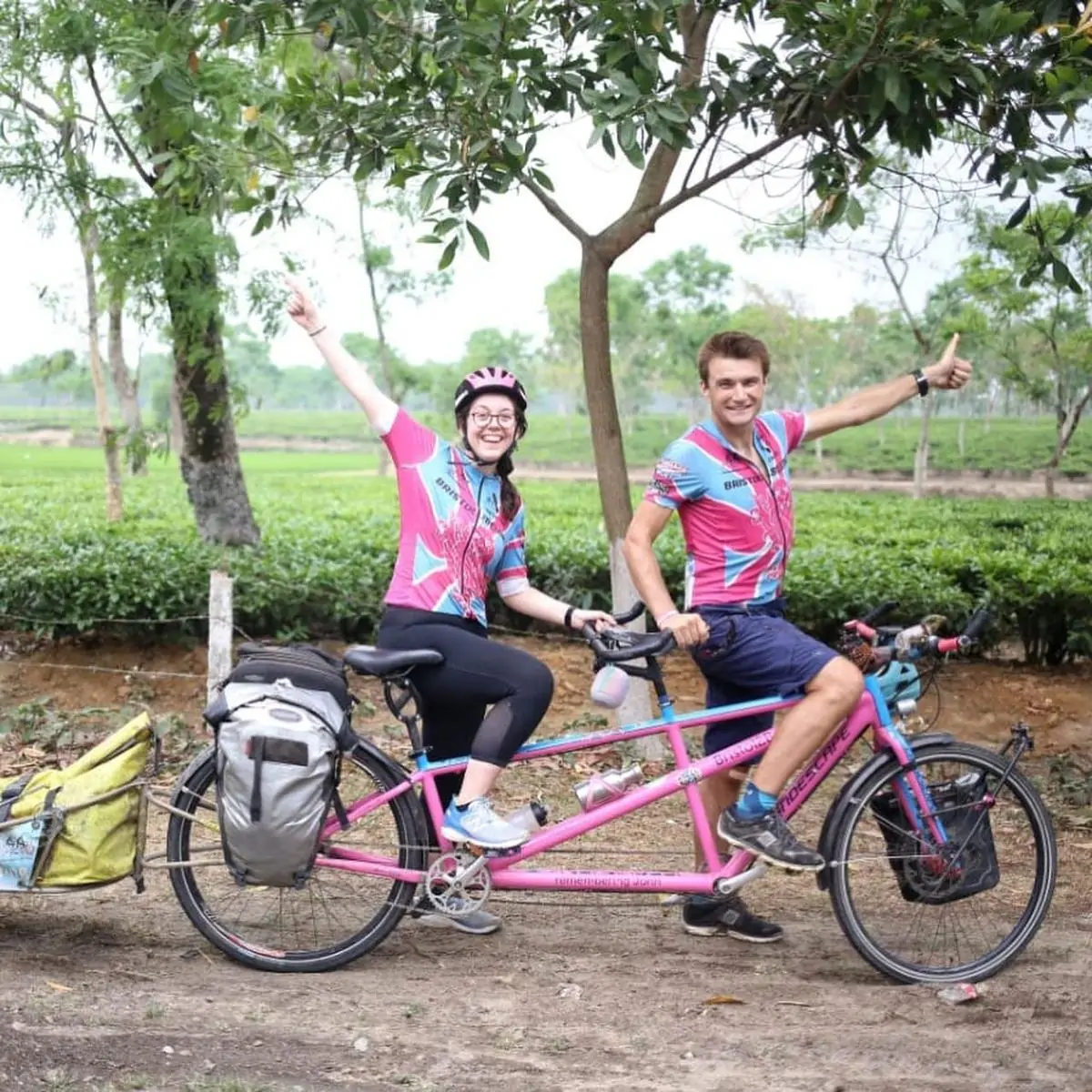
That’s impressive. During that journey and in other situations in life you motivate and inspire other people around you, I guess no person can be left untouched after hearing your story. But I guess this interaction probably goes both ways, so is there anything you’ve learnt during your journey or maybe after it ended?
— Prior to this cancer diagnosis I had lived a pretty normal life. Yes, I was a good friend but I didn’t really feel like I had much impact. I remember the first time I told my story at school and some kids were in tears and the room just went silent. And then the amount of discussion and talking about it that happened afterwards… I heard stories of how people were doing stuff differently with their lives because of it. And for me that was like the most incredible thing because I had never had an impact like that in my life. I felt like this is the coolest thing ever — I can share my story and it can be really profound and touch people. That’s immensely special.
Your cycle trip has ended two years ago, do you keep sharing your story now? What have you been up to for the last two years?
— The last two years have ended up being a somewhat unintentional journey into the world of trailrunning. One of the thing I hope to do with trail running is to use it as a platform to talk about some of the things I am passionate about and sharing my story and reaching more people through trail running. But beyond that I’ve been working very hard on the documentary film of the cycle ride and writing a book and those are some huge projects that take a lot of time.
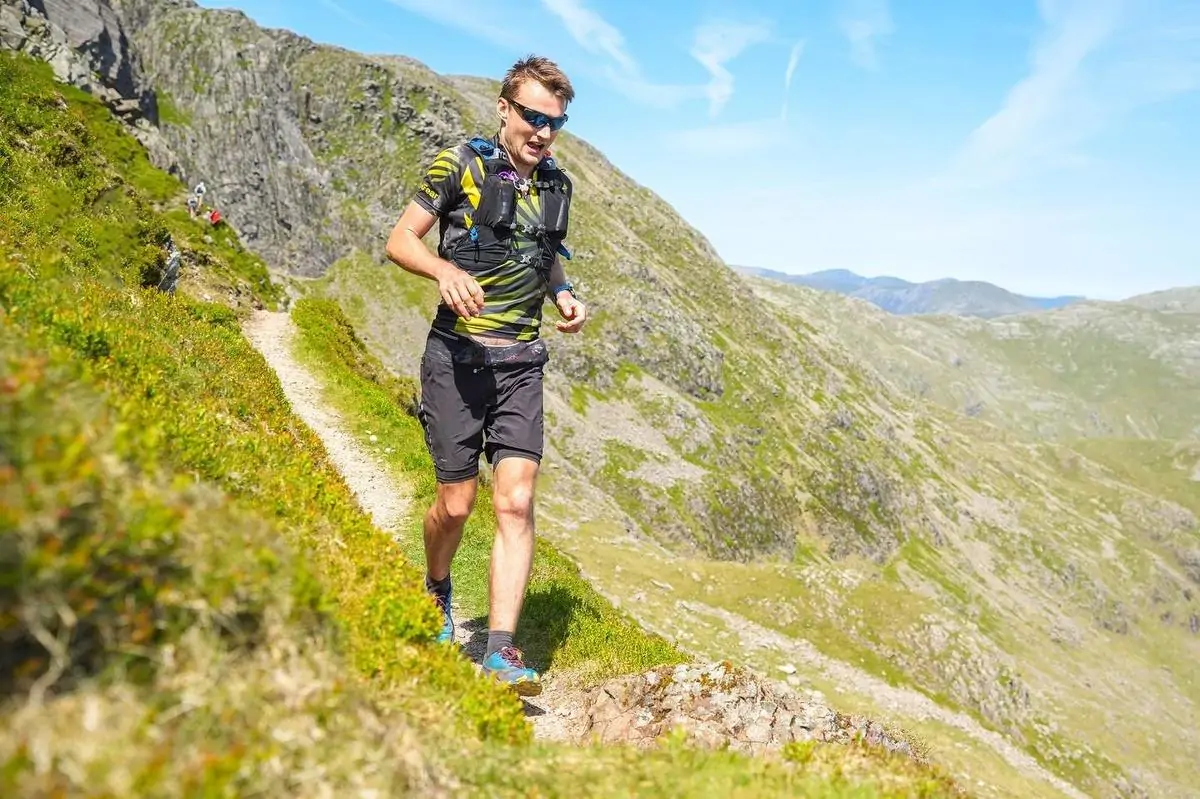
Speaking about trailrunning. You’ve been running ultra trails only for two years and you’ve already had a lot of outstanding results — course record on Eco trail Wicklow 80K, first place on Mozart 100k, 8th place on UTMB CCC and also you made it to the GB national team. What’s the secret behind these successful performances? Because it seems like you’ve come out of nowhere, out of the blue.
— From my perspective I suppose it is not out of the blue at all. I look back and I see how I have been training consistently for the last at least 15 years: running at quite a high level then doing triathlon at a pretty high level, doing some long distance cycle tours across Spain, Egypt, Lebanon and Morocco. So I’ve known for a very very long time that I was good at long distance events; I just hadn’t really started doing them, I waited till I was a little bit older. It’s not the biggest surprise to me but maybe from the outside it might seem more so. When you look at this progression of how much physical training and activity I’ve done over the last 15 years it is clear that it has given me a really big base.
I haven’t done many trail races though. I won lots of triathlons in the UK, not many huge ones, but still I’ve won plenty of races before, just not of this level I suppose.
Congrats on your recent win on the 110k Val D'aran by UTMB! You had an amazing race, you were in the lead from the very beginning till the finish line, which is really impressive. Could you tell us more about it from your perspective?
— Yeah. I just wanted to have fun in that race and race my own race. I went into it being very aware that 100k is a long way. I didn’t really know if I had the legs — I hadn’t raced a 100 k since CCC. I was like — Do I still have it? Am I still gonna be able to complete the distance? But at that point you just have to trust the training that you’ve put in and see what happens. We set off for the race and about after 5k, after the first small climb, I just thought that the lead guy wasn’t going fast enough so I thought I’m just gonna do this at my own pace. And then I felt like I’m gonna keep pushing on.
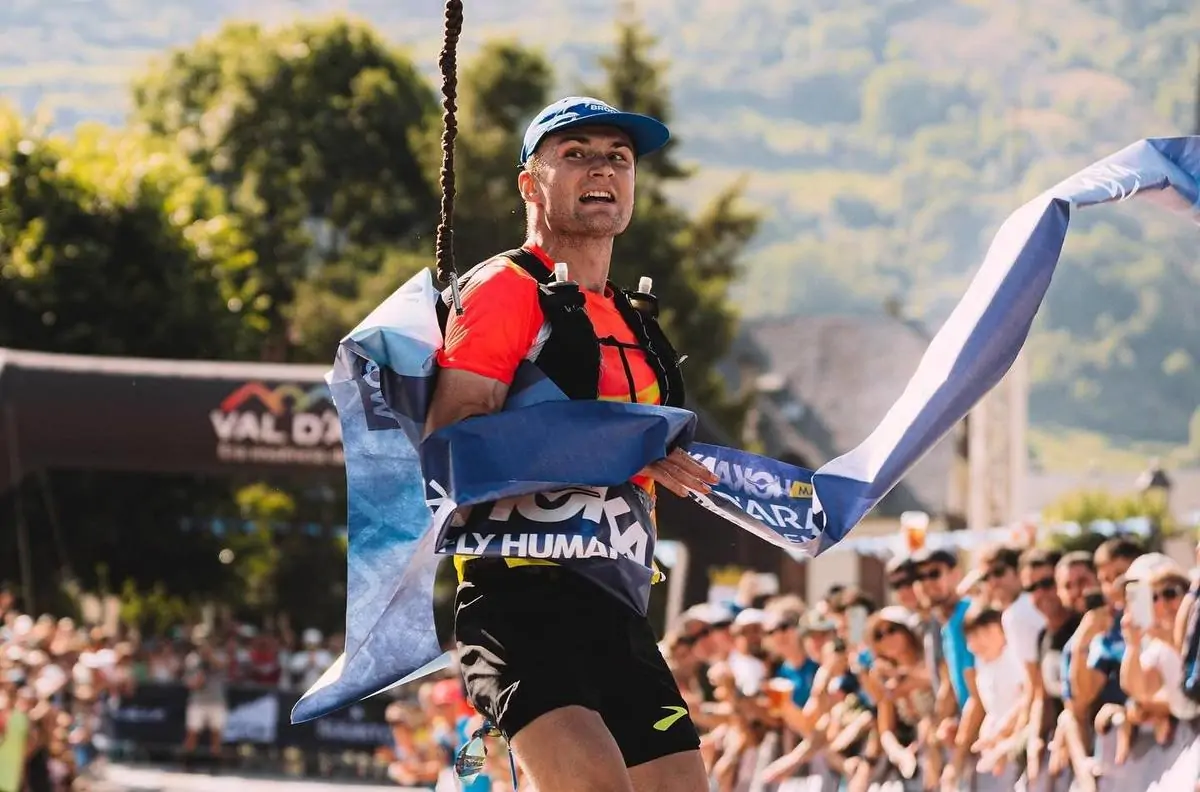
«You’ve chosen to spend upwards of 10-12 hours out in the mountains. It’s a choice. So you might as well embrace where you are and try to relish every moment.»
What was behind that, what has helped you to keep moving and sustain that high pace for 12 hours?
— I don’t know. I think staying in the moment is one thing. I think you’ve just got to enjoy where you are. Val D'aran is a beautiful race and for me a huge attraction of doing this race is being in a place that is so incredibly beautiful. At the end of the day you’ve chosen to spend upwards of 10-12 hours out in the mountains. It’s a choice. So you might as well embrace where you are and try to relish every moment. I think there are so many days when you couldn’t really say what you’ve done in them. We have so many nondescript days. But I think what is really special about race days is that you can look back and you’d say — well, I knew exactly what I was doing on the 5th of July and I really believed in what I was doing.
You mentioned the importance of the training. Can you share some bits of the training you’ve done before Val D'aran?
—I was here in Almaty for a block of training before the race. What do I do for training? I guess the key things are a long run on Saturday between 30-40 kms with a lot of vert and then another pretty long run on Sunday. And then there would be 1-2 quick sessions with some strides during the week. There is a mixture of working both at the sprint level and some long distance stuff. They are probably the biggest differences in my training between this year and last.
Last year I was living in Bristol in the UK and I think Bristol’s highest hill is like 90 metres. A lot of people were quite surprised last season when they asked me:
"Where do you train?"
"I train in Bristol."
"But where are the mountains?"
"There aren’t any mountains."
And then they were like: “How did you go up these hills so well?” I don’t really know. To me it doesn’t seem very difficult to go uphills, particularly when you only have to walk up them and whilst that’s not enough to win the biggest races, it seemed I was still fairly competitive. And that’s almost like a recovery.
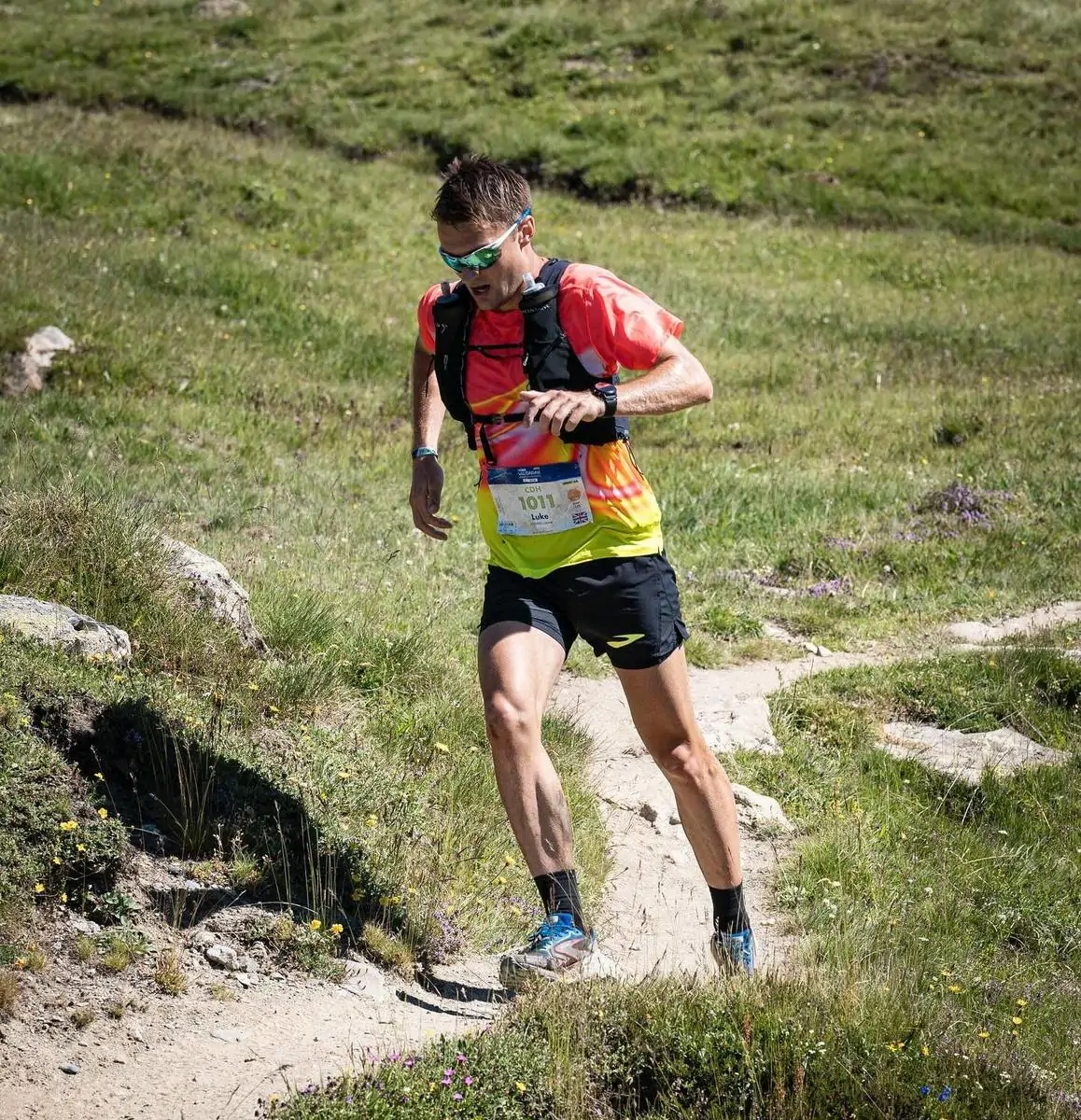
«I do think to myself in these races that there was a time when I was in hospital on chemotherapy and I would have given anything to being in this much pain if that meant that I was able to be out in the mountains.»
Would you agree that in the ultra running world it is usually a mind over matter type of situation rather than just being physically fit?
— Yes. And I don’t really know if that is something I have and other people don’t have; I can’t look inside the minds of other people. But it’s certainly quite possible that things that have happened in my past mean that it’s a lot easier for me to be grateful for who I am or stay in the moment. I do think to myself in these races that there was a time when I was in hospital on chemotherapy and I would have given anything to being in this much pain if that meant that I was able to be out in the mountains, healthy. How could I ever complain about being tired at 90 kilometres into a race? So maybe that reference point is a helpful one.
Do you consider yourself an elite trailrunner?
— Someone recently referred to me as a professional runner and I quite liked the sound of it. I guess I have what’s known as a “portfolio career” — I tutor and I’m writing a book and producing a film and those are still big parts of my life. But yeah I’m definitely trying to compete at the highest level in trail running.
But I guess you are a professional athlete because you are sponsored by Brooks, you’ve been on the national team for Great Britain. Aren’t those the features that a professional athlete has?
— I think “professional” can mean different things to different people but yes, those are some of the hallmarks of a professional athlete.
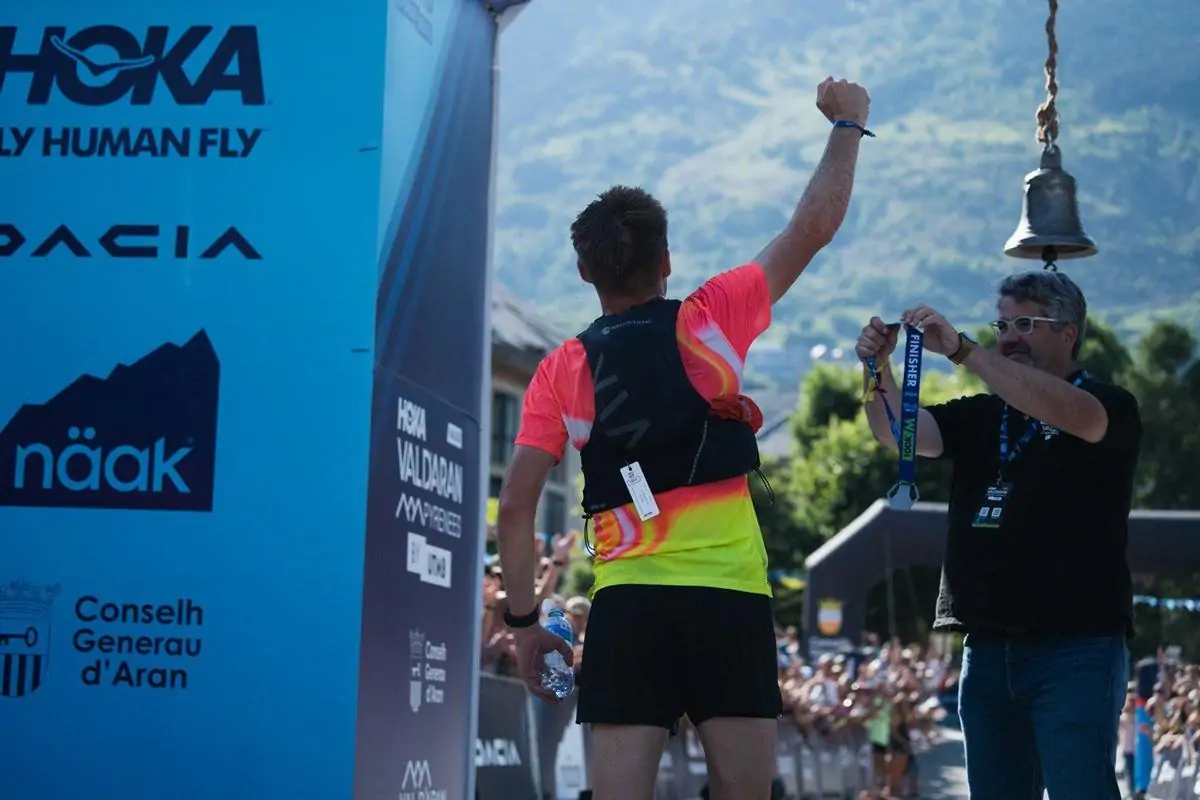
We’re a bit of gear geeks here at Mountain-Race. Could you tell us about the equipment you use for running and training?
— Sure. As you said, I am sponsored by Brooks. It’s a wonderful partnership because I’ve actually worn Brooks shoes for the past 12 or 13 years before I was sponsored by them. So it was a very genuine partnership, I have always found their shoes work well for my feet. But I do like their trail range, in particular the Catamount 3. It’s a really versatile shoe. It’s got enough cushioning to do a 100k in it, it’s fast enough to do tempo or threshold session, it’s got a good amount of padding. So I do feel it’s a shoe that is remarkably good at doing pretty much everything. And then for shorter stuff I love the Catamount Agil which is just a superlight shoe that wants to go fast.
What do you think is the longest distance possible to be covered in Agils?
— 40 k. I’ve done a 50k race in it but I think it’s probably best for 40k.
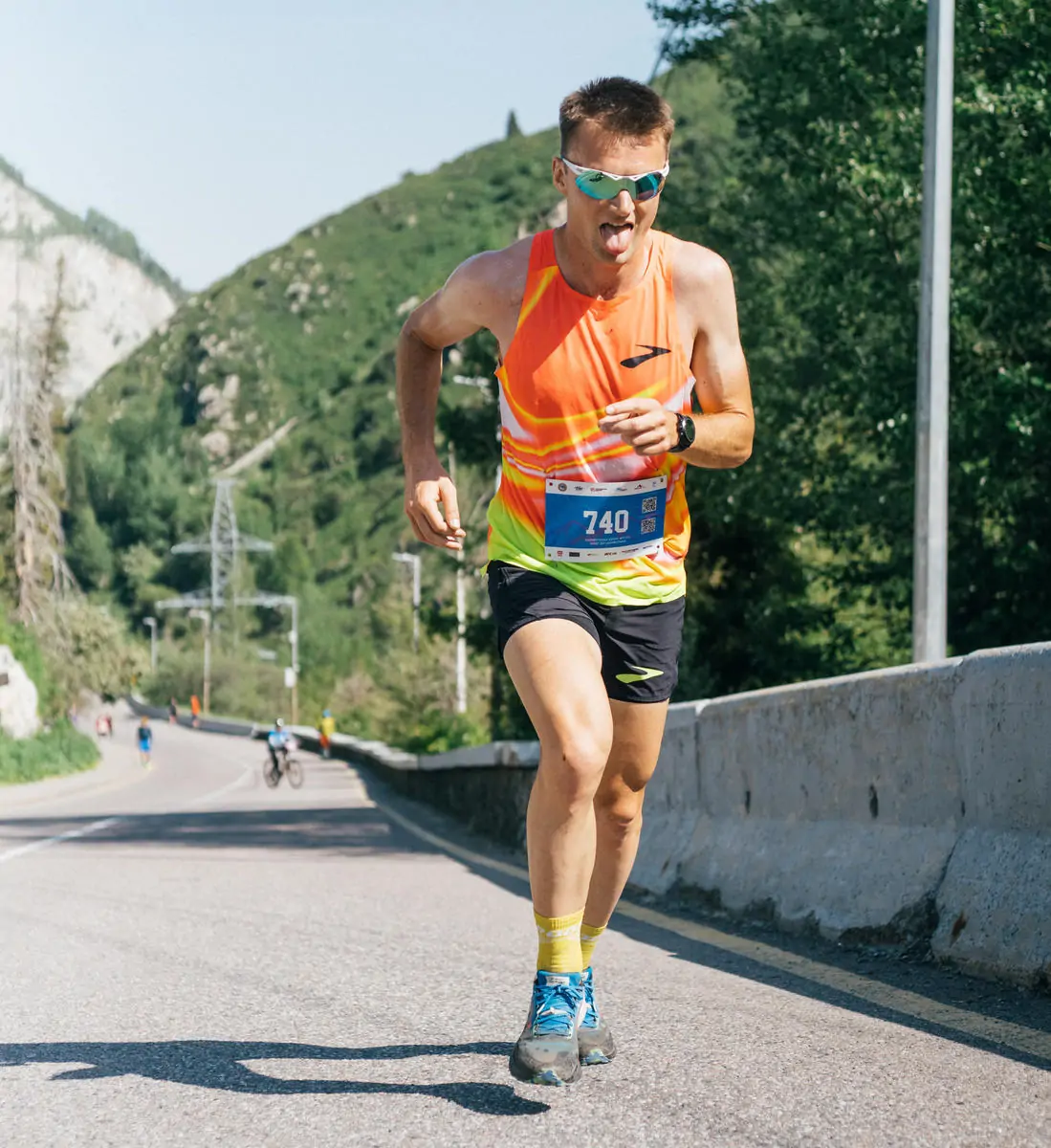
«You need to build that certain level of fitness before running becomes fun.»
You said that besides running a lot you also do tutoring and you’re also in the process of writing a book. How do you manage to strike the balance between your training and other things like job and personal projects?
— I think I have gained a lot of practice over the years. It helps that I’ve always wanted this life, I like having that balance and having different things to do. I don’t think it really helps if your whole life is focused around training either — at least not for me. I think at different times different things have to take priority. It is difficult to make progress on something like a book which requires a huge amount of time, so progress on that hasn’t been what I would like in some ways. But if I can bring it all together that would be brilliant. I know it’s a huge privilege to be able to spend the time working on several different projects that you passionately believe in.
Now you’re having a very active and fulfilling life, with lots of travelling, races and adventures. Do you find it hard to build plans for life once being diagnosed with cancer, even a few years ago?
— Yes, that’s a great question. I think for quite a few years after my cancer diagnosis I really only thought in 3 months chunks because I would have a scan every three months and as I said earlier, the expectation was that my cancer would be coming back. And it was just the case of waiting for it, well, I obviously wasn’t waiting but expecting at some point that I’d have a scan and that I’d be told my cancer has come back so I wouldn’t be able to do the ride or finish the ride or whatever it was. My cancer diagnosis now is over 6 years ago so it does feel a bit more distant now, it does give me a little bit more confidence to hope that I have a longer term future and have tentatively begun planning for the longer term as well. Now I am beginning to think: What would I want to do over two years or five years? What are the things I wanna work for in that longer time frame?
Where will we see you racing next time?
— UTMB CCC in August.
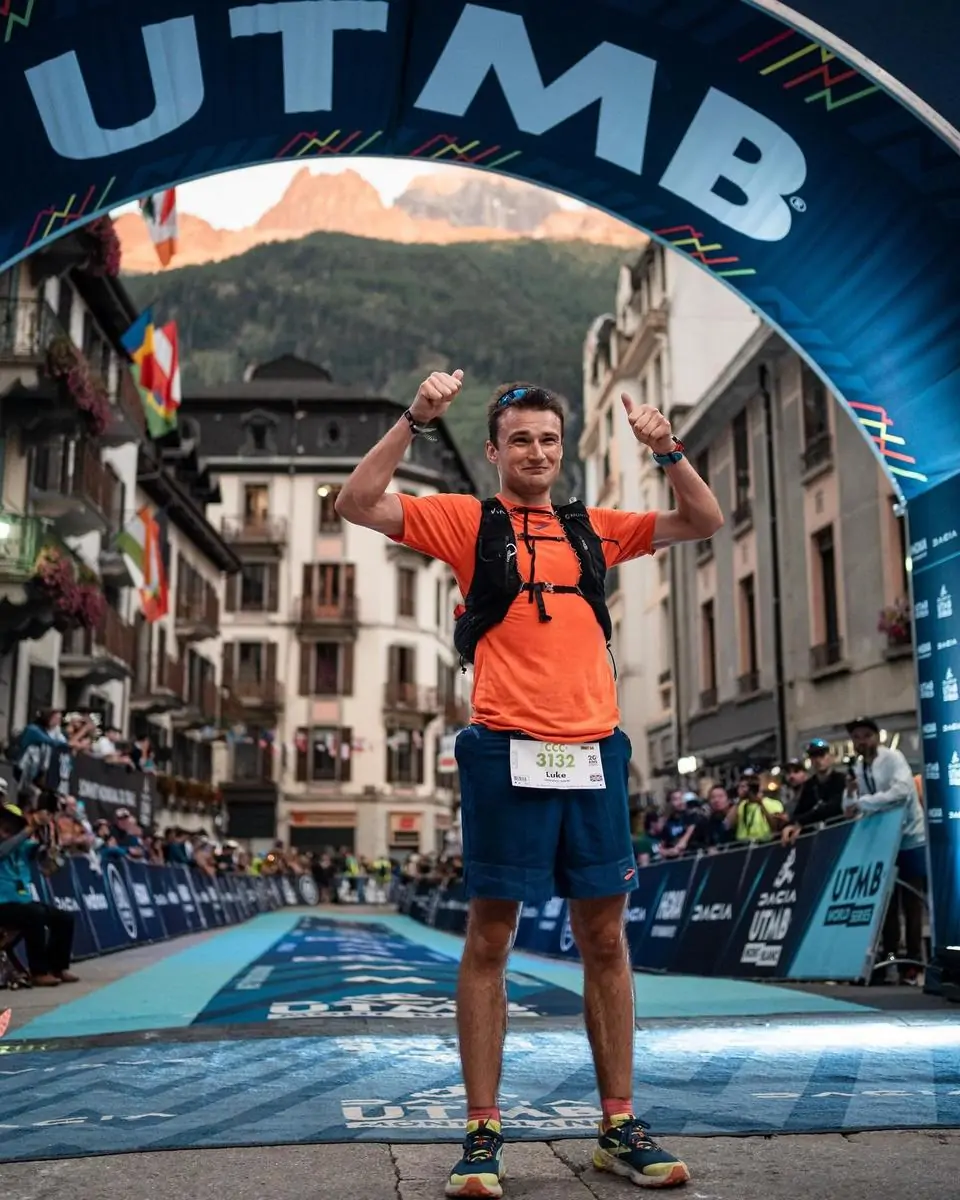
I have last 3 quick-fire questions.
What’s your life motto?
— I really like one of the lyrics from Alexander Hamilton’s song. The song is called “I am not throwing away my shot” and I feel that it probably in some ways epitomises how I wanna live my life and there is very nice lyric in it which is “Rise up”. It is something I do say to myself when life is tough, that it’s your moment to rise up, to put your best foot forward.
What’s your favourite place to have a run? Or the most beautiful one where you happened to have a run.
— There obviously are so many places but I feel that the mountains around Salzburg where I did the UTMB Mozart race were just stunningly beautiful. And maybe because it was my first UTMB win.
What are 3 things every runner must have? You don’t have to name materialistic things only.
— Okay :) I think probably the most important thing is a love of running. And if you don’t have that yet, because I don’t think you’re born with it, it’s something that you can develop. Then there is a determination to do the hard yards to get to the point where running feels easier. Because you need to build that certain level of fitness before running becomes fun. So the first thing is either love of running or determination to get to a decent level at it. Then second thing you need to run… A good pair of shoes is an obvious answer, but that’s pretty boring…
Like Brooks for example?
— Yeah, Brooks, I hear they’re good, I recommend those guys. I always need to take a pair of sunglasses with me because I squint in bright sunlight. So for me sunglasses are essential. A card is pretty handy too — you never quite know what might happen!
Thank you for your time Luke! It’s been such a great pleasure talking to you.
— Thank you as well. The pleasure is all mine.
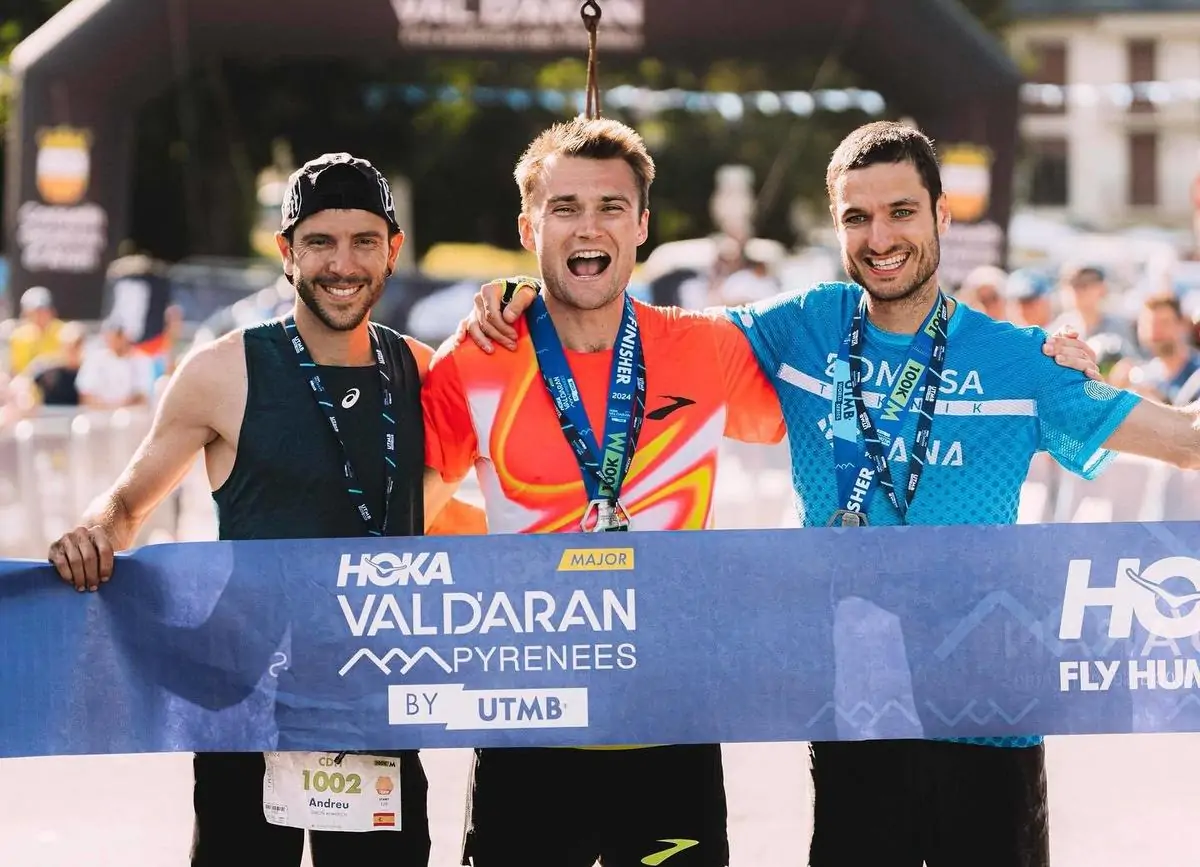
Photo credits: Luke's social media
Follow Luke on Instagram @lukegshaw for more adventures and race insights.
Актуальные новости трейлраннинга и скайраннинга, обзоры, интервью, блоги
Подпишись!

